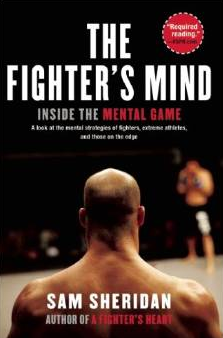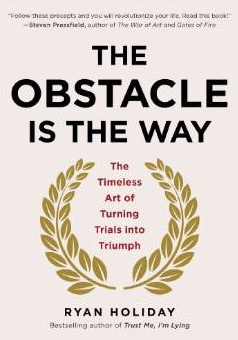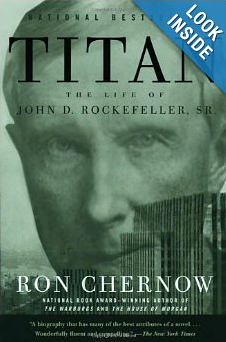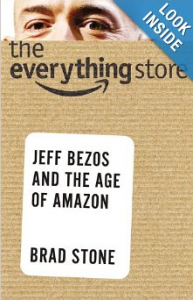I recently read “The Hard Thing About Hard Things: Building a Business When There Are No Easy Answers” by Ben Horowitz. Below are the quotes I found most interesting. As always, if you like the quotes, please buy the full book here.
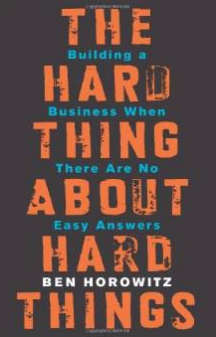 “Colin Powell says that leadership is the ability to get someone to follow you even if only out of curiosity.” (5)
“Colin Powell says that leadership is the ability to get someone to follow you even if only out of curiosity.” (5)
“The simple existence of an alternate, plausible scenario is often all that’s needed to keep hope alive among a worried workforce.” (5)
“Most business relationships either become too tense to tolerate or not tense enough to be productive after a while. Either people challenge each other to the point where they don’t like each other or they become complacent about each other’s feedback and no longer benefit from the relationship. With Marc and me, even after eighteen years, he upsets me almost every day by finding something wrong in my thinking, and I do the same for him. It works.” (14)
“During the road show, as a way to break tension, Marc would say, ‘Remember, Ben, things are always darkest before they go completely black.’” (28)
“If you are going to eat shit, don’t nibble.” (29)
“As painful as it might be, I knew that we had to get into the broader market in order to understand it well enough to build the right product. paradoxically, the only way to do that was to ship and try to sell the wrong product. We would fall on our faces, but we would learn fast and do what was needed to survive.” (41)
“Markets weren’t ‘efficient’ at finding the truth; they were just very efficient at converging on a conclusion – often the wrong conclusion.” (52)
“Startup CEOs should not play the odds. WHen you are building a company, you must believe there is an answer and you cannot pay attention to your odds of finding it. You just have to find it. It matters not whether your chances are nine in ten or one in a thousand; your task is the same.” (59)
“People always ask me, ‘What’s the secret to being a successful CEO?’ Sadly, there is no secret, but if there is one skill that stands out, it’s the ability to focus and make the best move when there are no good moves. It’s the moments where you feel most like hiding or dying that you can make the biggest difference as a CEO.” (59)
“Nobody cares. And they are right to not care. A great reason for failing won’t preserve one dollar for your investors, won’t save one employee’s job, or get you one new customer. It especially won’t make you feel one bit better when you shut down your company and declare bankruptcy.” (92)
“All the mental energy you use to elaborate your misery would be far better used trying to find the one seemingly impossible way out of your current mess. Spend zero time on what you could have done, and devote all of your time on what you might do. Because in the end, nobody cares; just run your company.” (92)
“Being a good company doesn’t matter when things go well, but it can be the difference between life and death when things go wrong. Things always go wrong. Being a good company is an end in itself.” (102)
“The primary thing that any technology startup must do is build a product that’s at least ten times better at doing something than the current prevailing way of doing that thing. Two or three times better will not be good enough to get people to switch to the new thing fast enough or in large enough volume to matter.” (179)
“The first rule of organizational design is that all organizational designs are bad.” (188)
“You want to optimize the organization for the people – for the people doing the work – not for the managers. Most large mistakes in organizational design come from putting the individual ambitions of the people at the top of the organization ahead of the communication paths for the people at the bottom of the organization.” (190)
“Hiring scalable execs too early is a bad mistake. There is no such thing as a great executive. There is only a great executive for a specific company at a specific point in time.” (194)
“Perhaps the most important thing that I learned as an entrepreneur was to focus on what I needed to get right and stop worrying about all the things that I did wrong or might do wrong.” (200)
“Focus on the road, not the wall.” (207)
“Over the last ten years, technological advances have dramatically lowered the financial bar for starting a new company, but the courage bar for building a great company remains as high as it has ever been.” (213)
“The enemy of competence is sometimes confidence.” (223)
“To be a good CEO, in order to be liked in the long run, you must do many things that will upset people in the short run.” (230)
Liked the quotes? Click here to buy the book.

